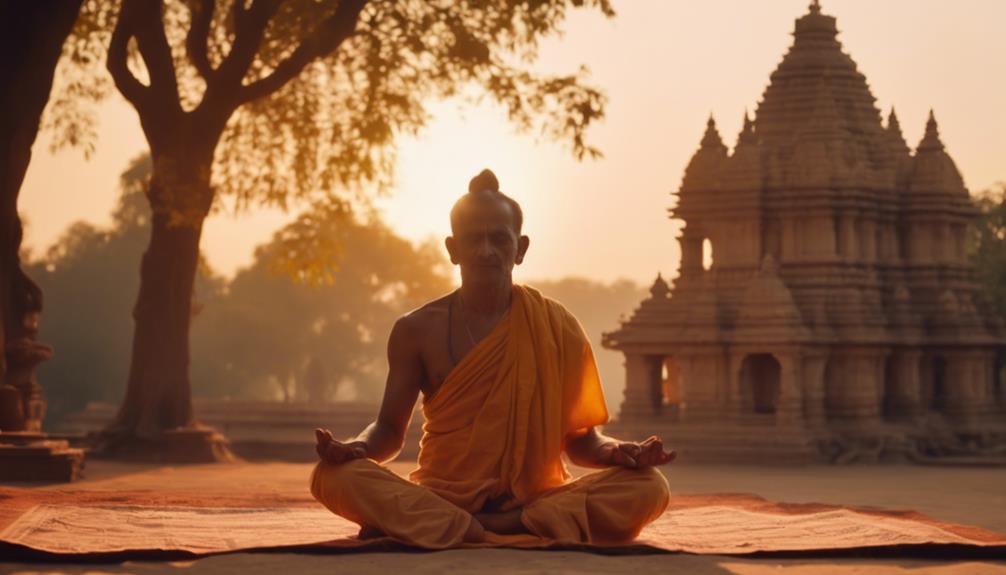
Yoga, a practice celebrated worldwide for its myriad benefits, is often rooted in the rich soil of Hindu philosophy. As individuals roll out their mats in studios and parks across the globe, they may wonder: is yoga truly a gift from Hinduism? This question leads us into a vibrant exploration of yoga’s historical and spiritual connections to the ancient traditions of India, revealing the joyful essence and deeper meanings that this practice carries with it.
Unraveling Yoga: A Gift from Hinduism to the World!
Yoga is more than just a sequence of poses; it is a profound system of spiritual, mental, and physical practices that stem from ancient Indian traditions. The word "yoga" itself is derived from the Sanskrit root "yuj," which means "to unite" or "to join." This union can be interpreted as the joining of individual consciousness with universal consciousness—a core tenet found in Hindu philosophy. As such, yoga serves as a bridge that connects practitioners to a deeper understanding of themselves and the universe around them.how many calories do you burn doing yogahow many calories hot yoga burnhaven yoga bakersfield
Historically, we can trace the origins of yoga back to the Vedic texts, which were composed thousands of years ago in ancient India. The Upanishads, a collection of philosophical writings, began to outline the concepts of meditation, self-discipline, and the pursuit of spiritual truth. The Yoga Sutras of Patanjali, composed around 400 CE, further codified yoga as an eight-limbed path, encompassing ethical precepts, physical practices, and meditative techniques—a framework that is still relevant and revered today.
As yoga has gained global popularity, it has begun to evolve and adapt, intersecting with various cultural practices while still maintaining its Hindu roots. The beauty of yoga is its ability to resonate with seekers from all walks of life, transcending geographical and cultural boundaries. This universal appeal highlights how yoga remains a gift from Hinduism to the world, offering valuable insights into holistic well-being and spiritual growth.
Discover the Joyful Roots of Yoga in Ancient Traditions!
The roots of yoga are steeped in the joyous traditions of ancient India, where it was not only a practice but a way of life. For thousands of years, sages and yogis have embraced yoga as a means to explore the depths of human experience, cultivating inner peace and harmony. It is within these ancient practices that we discover the joyful essence of yoga—a celebration of life, breath, and connection. The asanas (postures) often emphasize balance and alignment, mirroring the ideal of harmony that is central to Hindu beliefs.
Beyond the physical postures lies a treasure trove of rich philosophies. The teachings of yoga invite practitioners to delve into concepts such as karma, dharma, and moksha—each representing different facets of the human experience and spiritual journey. Embracing these principles fosters a sense of purpose and joy, revealing that yoga is not merely about flexibility or strength; it is about cultivating a joyful existence grounded in awareness and compassion.
The joyous roots of yoga have blossomed into diverse styles and schools of thought, each offering unique perspectives and practices. From Hatha and Vinyasa to Kundalini and Yin, the variety within yoga presents endless opportunities for exploration and growth. Practitioners are encouraged to find what resonates with them, engaging with the traditions that spark joy and curiosity. It is this joyful exploration that keeps yoga vibrant, ensuring its relevance and accessibility for future generations, while still honoring its ancient origins.
In conclusion, yoga is indeed a precious gift from Hinduism, woven with rich traditions, philosophies, and joyous practices. As we engage with yoga, whether in the form of asana, meditation, or mindful living, we connect to a lineage that values unity, harmony, and spiritual growth. The practice of yoga transcends cultural boundaries, inviting each individual to discover their own path to joy and self-awareness. So, as you roll out your mat, know that you are participating in a beautiful legacy—a celebration of life that has been lovingly passed down through the ages!





